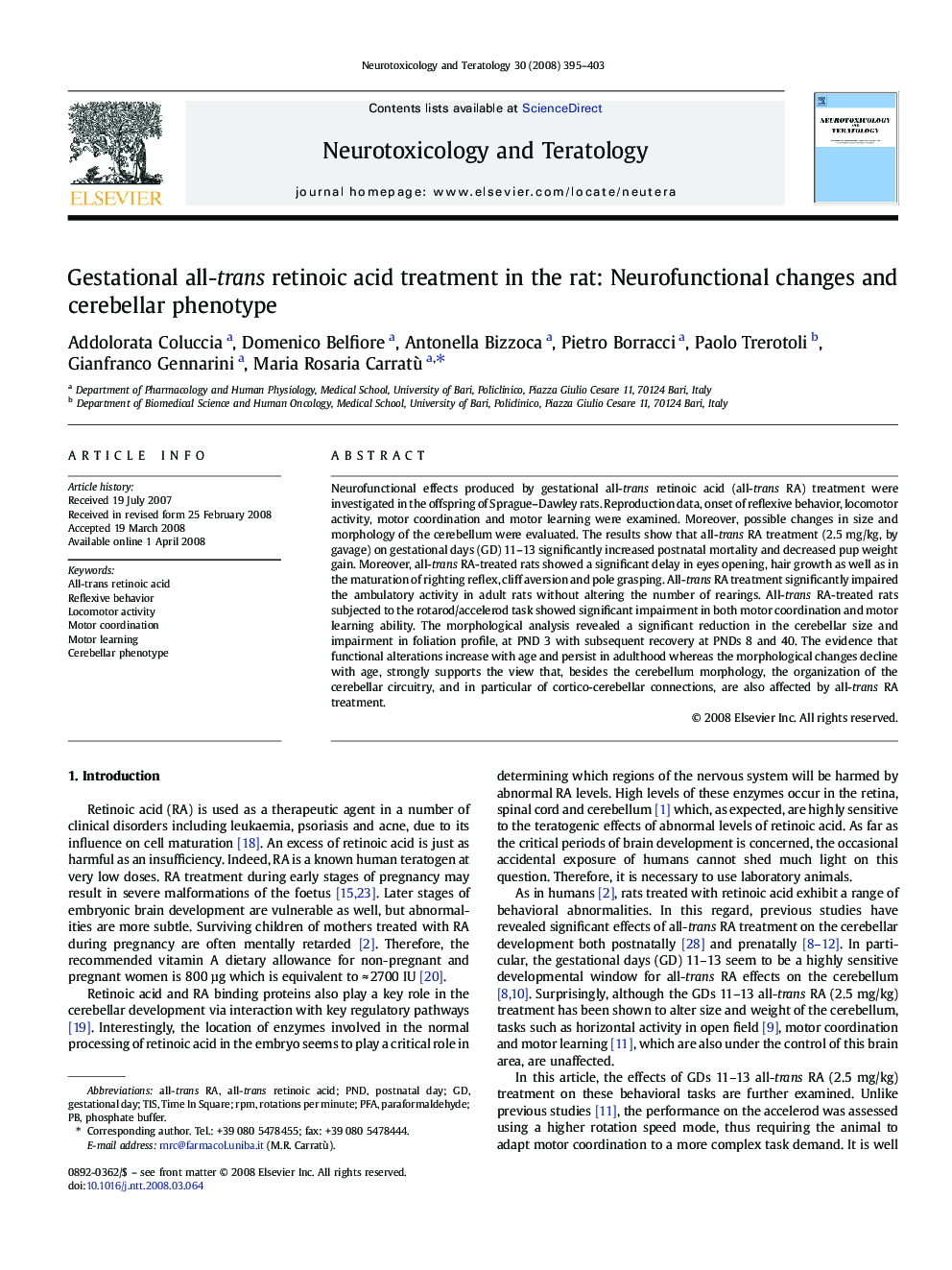| Article ID | Journal | Published Year | Pages | File Type |
|---|---|---|---|---|
| 2591847 | Neurotoxicology and Teratology | 2008 | 9 Pages |
Neurofunctional effects produced by gestational all-trans retinoic acid (all-trans RA) treatment were investigated in the offspring of Sprague–Dawley rats. Reproduction data, onset of reflexive behavior, locomotor activity, motor coordination and motor learning were examined. Moreover, possible changes in size and morphology of the cerebellum were evaluated. The results show that all-trans RA treatment (2.5 mg/kg, by gavage) on gestational days (GD) 11–13 significantly increased postnatal mortality and decreased pup weight gain. Moreover, all-trans RA-treated rats showed a significant delay in eyes opening, hair growth as well as in the maturation of righting reflex, cliff aversion and pole grasping. All-trans RA treatment significantly impaired the ambulatory activity in adult rats without altering the number of rearings. All-trans RA-treated rats subjected to the rotarod/accelerod task showed significant impairment in both motor coordination and motor learning ability. The morphological analysis revealed a significant reduction in the cerebellar size and impairment in foliation profile, at PND 3 with subsequent recovery at PNDs 8 and 40. The evidence that functional alterations increase with age and persist in adulthood whereas the morphological changes decline with age, strongly supports the view that, besides the cerebellum morphology, the organization of the cerebellar circuitry, and in particular of cortico-cerebellar connections, are also affected by all-trans RA treatment.
